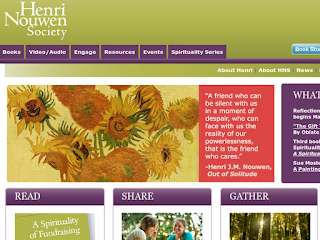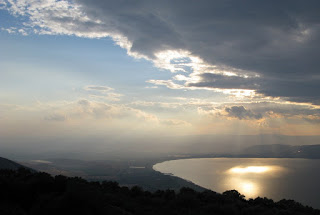I came across the following list of convictions on Alan Knox's blog, 'The assembling of the church'. He in turn had found them on the blog of David Black (9th July 2012).
David suggests that the list expresses the essence of a spiritual priesthood. I agree. (See 1 Peter 2:4-10)
For me this list is quite delightful and very insightful. It deserves to be widely seen and discussed so please add a comment.
Are you convinced of each of these points? If not, which ones do you disagree with and why? Would you add any further convictions of your own? If so, what?
- I am convinced that the house church rather than the sanctuary church was the New Testament norm.
- I am convinced of the normalcy of tent making leadership.
- I am convinced that the church exists in part to equip all of its members for ministry.
- I am convinced that the leadership of the church should be shared for the health of the congregation.
- I am convinced that top-down structures of leadership are unquestionably more efficient -- efficient in doing almost everything than equipping, which is the primary task of leadership.
- I am convinced that the process of appointing new elders is best done on the basis of recognizing who is already serving as an elder in the church.
- I am convinced that any local church that takes seriously Jesus as the Senior Pastor will not permit one man to become the titular head of the church.
- I am convinced that the essential qualifications for ministry in the church have little or nothing to do with formal education and everything to do with spiritual maturity.
- I am convinced that the church is a multigenerational family, and hence one of the things that makes the church the church is the presence of children, parents, and other adults.
- I am convinced that because every local church has all the spiritual gifts it needs to be complete in Christ, believers should be exposed to the full expression of the charisms (grace-gifts) when they gather, in contrast to specialized ministries that center around singularly gifted people.
- I am convinced that the local church is the scriptural locus for growing to maturity in Christ, and that no other training agency is absolutely needed.
- I am convinced that the local church ought to be the best Bible school going.
- I am convinced that Paul's letters were not intended to be studied by ordinands in a theological college but were intended to be read and studied in the midst of the noisy life of the church.
- I am convinced that the church is a theocracy directly under its Head (Jesus Christ), and that the will of the Head is not mediated through various levels of church government but comes directly to all His subjects.
- I am convinced that the goal of leadership is not to make people dependent upon its leaders but dependent upon the Head.
- I am convinced that since all believers are "joints" in the body, ministry is every believer's task.
- I am convinced that pastor-teachers, as precious gifts of Christ to His church, are to tend the flock of God by both personal care and biblical instruction, equipping God's people for works of service both in the church and in the world.
- I am convinced that the role of pastor-teacher is a settled ministry in a local congregation.
- I am convinced that leaders should communicate that every part of the body is interrelated to the other parts and indispensable; every member will be appreciated, every charism will be treasured.
- I am convinced that the whole church, the community of all the saints together, is the clergy appointed by God for ministry. The fundamental premise upon which I operate is that each believer in the church needs to be equipped for his or her own ministry both in the church and in the world. If the church is to become what God intended it to be, it must become a ministerium of all who have placed their faith in Christ. The whole people of God must be transformed into a ministering people. Nothing short of this will restore the church to its proper role in the kingdom of God.






















